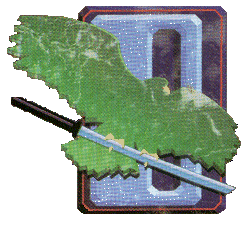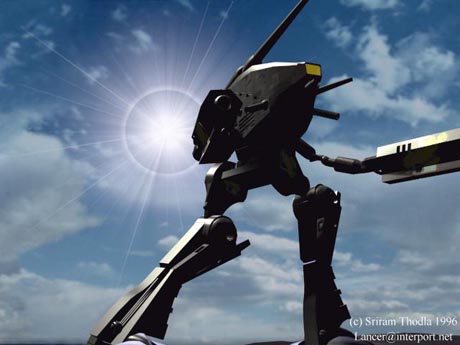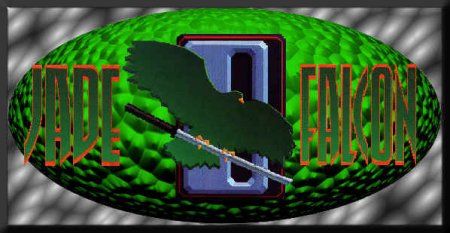
| 
|
 
To reduce the waste associated with war while guaranteeing that each generation would keep honing its combat edge, Kerensky codified the practice of warfare into a series of combat trials, each associated with a particular goal. The Trial of Possession is the most basic trial, in which one warrior or Clan aims to possess something that belongs to another. Other trials include Trials of Grievance, Refusal, Bloodright and Annihilation.
In any trial, the two sides fight a ritualized battle-sometimes hand-to-hand combat, sometimes full-scale BattleMech combat. Trials are fought in a clearly defined area known as the Circle of Equals, usually located away from populated areas so as to inflict as few civilian casualties and as little collateral damage as possible
The prospective combatants then further reduce the scale of battle by bidding. Every conflict begins with the batchall, in which the defending force is clearly announced to the attacker. The commanders among the attacking force then proceed to bid with each other for the right to attack the target. The commander who bids the smallest and least powerful force is awarded the honor of making the attack. By ensuring that the smallest possible attacking force will be used to take the objective, the bidding process limits the loss of warriors and material..
Once battle is joined, the warriors begin the ritual of zellbrigen, or dueling. Each warrior challenges a single opposing warrior to a duel, and the two fight each other one-on-one. No other combatants on the field will join in such a battle; doing so is a serious breach of honor. In fact, if one side in a battle outnumbers the other, the excess warriors will stand by without interfering; they will enter the fray only when one of their comrades falls. In rare circumstances a breach of Clan honor may touch off a melee, where all units on the field may freely fire on the opposing side. However, the Clans usually reserve this barbaric practice for opponents they consider dishonorable, such as pirates and mercenaries.
When the Clans came to the Inner Sphere, they were set in their strange ways. At first, the Clans' odd tactics went without notice as their powerful OmniMechs plowed through rank after rank of Inner Sphere BattleMechs. However, a perceptive Inner Sphere commander can spot the weaknesses in Clan fighting strategy and exploit them to his advantage, thereby narrowing the gap created by the Clans' advanced weapons and training. Such was the case at the famous battles of Twycross, Wolcott and Tukayyid, in which massive Clan offensives were blunted by the crafty strategic thinking of Inner Sphere commanders.
The Clan codes of honor, also known as "rules of engagement," are not part of the BattleTech or CityTech formal game rules. However, these codes can be used to enhance the roleplaying aspect of BattleTech, creating a richer game experience more closely linked to the fictional BattleTech universe. In addition, enforcing the rules of engagement restricts the power of Clan forces, giving Inner Sphere forces a fighting chance against the Clans' superior weapons and skills.
Clan honor codes fall into four categories, each dealing with a different part of combat: Batchall, Zellbrigen, Physical Attacks and Retreat. Clan dueling rules and restrictions on physical attacks apply only to enemy 'Mechs. Clan MechWarriors may attack conventional vehicles and infantry targets without reference to Clan honor. Likewise, Clan infantry and vehicles need not follow the rules of engagement, though Elemental points often follow the code of zellbrigen. Each point is considered a single unit for the purposes of dueling.
Zellbrigen (Dueling)
Under the rules for ritual dueling, or zellbrigen, Clan players must declare a target for each of their dueling 'Mechs. A typical declaration might sound something like, "I am MechWarrior Seth of Clan Steel Viper. I pilot the sole Summoner in Alpha Star. I hereby invoke the ritual of zellbrigen and challenge the pilot of the Orion adorned with the unit designation eleven to a duel of warriors. In this solemn matter, let no one interfere!"
During a duel, no other Clan warrior may attack either of the dueling 'Mechs. If a third Inner Sphere unit interferes with a duel, the dueling Clan warrior may attack the interfering unit, provided that another Clan 'Mech has not already challenged the interloper to a duel. A duel ends when one combatant is destroyed, disabled or retreats from the battlefield.
Using zellbrigen in a game requires a certain degree of cooperation between players. A crafty Inner Sphere player can exploit the rules of engagement to deny the Clan player any targets at all. Not only is this grossly unfair, but it is also inaccurate in terms of the BattleTech universe (plus, it's not much fun for the Clan player).
Finally, the Clan player should not be expected to adhere to the rules of engagement when it would be foolish to do so (as in the following example).
You have one Daishi and your opponents have four 'Mechs: a Banshee, an Orion, an Atlas and a Spider. The Spider challenges the Daishi to a duel, which the Daishi accepts. The Spider then proceeds to use its superior movement rate to hide behind hills and heavy woods so that the Daishi never gets line of sight to it. Meanwhile, the other three members of the Spider's lance pound the Daishi to dust. The Daishi cannot retaliate because its player must adhere to Clan honor, which in this case means he can only attack the 'Mech that challenged him to a duel. He vainly attempts to chase the Spider, while "off-limits" enemies destroy his BattleMech. Requiring the Daishi in this example to strictly obey the rules of engagement means that the Clan player must sit back and allow his unit to be destroyed.
Because of the possibility of situations such as that above, Clan warriors are not required to give the honor of zellbrigen to warriors who do not fight honorably. If an enemy repeatedly violates zellbrigen, the clan warrior can as well.
Physical Attacks
Unlike the formal ritual of dueling, the Clans' dislike of physical attacks in 'Mech combat is an informal, if widespread, custom. No explanation has yet been given for this distaste, though some experts suspect that Nicholas Kerensky chose to encourage a long-range fighting style among the Clans.  Home | 
| 
|


